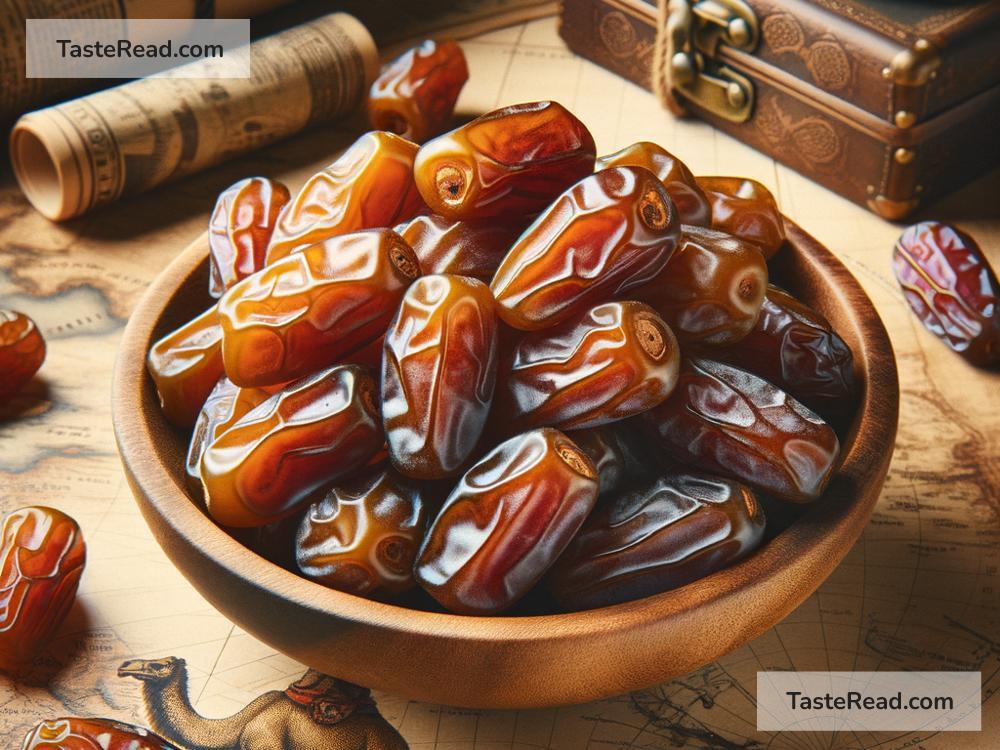The Curious History of Dates as a Survival Food
Dates are more than just a sweet, chewy treat. These small, brown fruits have played a crucial role in human history, especially as a survival food. For thousands of years, dates have sustained travelers crossing harsh deserts, nourished soldiers during long battles, and kept communities alive in times of hardship. In this blog, we’ll explore the fascinating history of dates and understand why these humble fruits have been so vital for survival.
What Are Dates?
Dates are the fruits of the date palm tree, which grows in hot, dry climates. They are rich in natural sugars, fibers, vitamins, and minerals, making them a perfect energy-boosting snack. The date palm, scientifically known as Phoenix dactylifera, is one of the oldest cultivated trees in human history. Its origins trace back to the Middle East and North Africa, areas where food security has often depended on sustainable, long-lasting crops.
Dates grow in clusters, hanging like golden jewels from tall palms. When ripe, they range in color from yellow to dark brown, and their texture can be soft, semi-dry, or dry, depending on the variety. They need very little water to grow, making them ideal for arid regions.
A Food of Ancient Beginnings
The earliest evidence of date cultivation dates back to around 6,000 BCE in Mesopotamia (modern-day Iraq). Ancient civilizations like the Sumerians, Babylonians, and Egyptians valued dates not just for their taste but also for their versatility. Dates provided essential nutrients and energy, especially for people living in challenging desert environments where food options could be scarce.
Dates were part of Egyptian rituals and tomb offerings, as they were believed to provide nourishment in the afterlife. Archaeologists have even found dried dates in ancient tombs, proving their cultural and nutritional significance.
The spread of dates wasn’t limited to specific regions. As trade routes expanded, dates traveled along with merchants and explorers. They reached areas like Persia, India, and parts of Europe, eventually earning their global reputation.
Why Dates Are a Survival Food
Dates are often described as “nature’s energy bar.” Their nutritional qualities make them ideal for survival:
-
Rich in Energy: The high sugar content in dates provides an instant energy boost. This is why they are popular among people who need quick sustenance, such as soldiers and long-distance travelers.
-
Nutritious and Filling: Dates contain essential nutrients like potassium, magnesium, iron, and vitamin B6. They are also high in fiber, which helps stave off hunger for longer periods.
-
Store Well: Unlike many fresh fruits, dates can last for months or even years without spoiling. When dried, they become even more durable, making them an excellent choice for stocking up during hard times.
-
Easy to Carry: Lightweight and compact, dates are perfect for traveling. Whether you’re trekking through deserts or sailing the seas, they’re a portable source of nutrition.
The Desert Staple
In desert regions, dates are critically important. For centuries, they formed the foundation of diets for nomads and settlers alike. The Bedouin people, for example, relied heavily on dates as their main food source during long journeys across the deserts of the Arabian Peninsula. Paired with camel milk, dates provided a balanced, energy-packed diet that could keep a person healthy during weeks of travel.
Palm trees were often called “the tree of life” in the Middle East because they grew in tough conditions and supported entire communities. Beyond their fruit, palm trees offered other life-saving resources: their leaves were used to make shelters, their wood was turned into tools, and their seeds could be ground into feed.
Dates in Religious and Cultural Practices
Dates also hold special significance in many religious traditions. In Islam, dates are often eaten to break the fast during Ramadan. This tradition comes from the Prophet Muhammad, who is said to have eaten dates when ending his daily fasts. Dates are considered a gift from God and symbolize sustenance and blessings.
Similarly, in Judaism, dates are mentioned in the Bible as one of the seven species of plants cherished in ancient Israel. They were among the offerings brought to the Temple in Jerusalem.
Culturally, dates are celebrated in festivals and feasts across the Middle East. Many traditional desserts and dishes include dates, showcasing their importance not just for survival but also for their role in culinary heritage.
Modern-Day Survival Food
Even today, dates are used as survival food in areas recovering from natural disasters or famine. Relief organizations often distribute dates as emergency rations because they require no cooking, are easy to store, and provide instant nourishment to hungry populations.
For athletes, hikers, and outdoor enthusiasts, dates have become a popular addition to trail mixes and energy bars because of their natural sweetness and nutritional benefits.
Conclusion
The history of dates as a survival food is a testament to their enduring value. From ancient civilizations to modern times, these small fruits have sustained people in the toughest of circumstances. Whether it’s crossing a scorching desert, fighting in a war, or enduring a natural disaster, dates have been a reliable source of strength and energy.
Next time you enjoy a date, take a moment to appreciate its history. It’s not just a delicious snack—it’s a symbol of resilience, adaptability, and survival.


